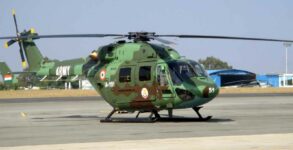In Pakistan, talking and writing about India is anathema. Eulogizing Hafiz Saeed, the Jammat-ud-Dawa leader and mastermind of the 26/11 attack is considered as passport to good life and protection from any retributive action from Pakistan Army and its supporters. Imran Khan headed new Pakistan government works as a facilitator to the country’s Army on ongoing agenda covering political, economic, defence and foreign policy of the country. Therefore, his government appears to have no moral compunction in taking punitive action against journalists, columnists and media houses if they write against terrorists and non-state actors—as they serve as strategic assets for the country’s Army.
But Cyril Almeida, a leading columnist for Dawn, remained lucky as the Lahore High Court, which summoned him on Monday on a treason charge, gave him a personal relief. While arrest warrant against him has been withdrawn, the High Court has also ordered removal of his name from the no-fly list. On September 25, the High Court issued a non-bailable arrest warrant against him on a treason charge as his article in May featured Nawaz Sharif’s interview in which the deposed Prime Minister had supported India’s accusation that Pakistan Army added the terrorists who carried out the 2008 Mumbai attack in which 166 people, including foreigners were killed. The move created a sense of unease among Pakistani journalists and civil society members. Some of them went to the extent of calling it as the “darkest period” of journalism in Pakistan’s history.
For India, however, the incident remained a matter of concern as it showed that Prime Minister Imran Khan, while doing Pakistan Army’s bid on the terrorism front, would pursue aggressive anti-India agenda. On October 1, the Imran Khan government’s Minister for Religious Affairs and Interfaith Harmony Noor-Ul-Haq Qadri shared a dais with Lashkar-e-Taiba founder and 26/11 mastermind Hafiz Saeed, just hours after Foreign Minister Shah Mehmood Qureshi told the UN General Assembly that his country has “turned the tide against terrorism.” The incident showed that there is no change in Pakistan’s attitude towards terrorism even after Imran Khan assumed prime ministerial chair in the country.
Also, there is a recorded fact about Imran Khan’s association with hardliners and jehadis. He courted controversy by describing Tehreek-e-Taliban Pakistan commander Wali-ur-Rehman, killed by American troops in 2013, as “pro peace.” In 2013 itself, his statement grabbed media headlines when he said that the Taliban should be allowed to open an office somewhere in Pakistan. His argument was that if the US could open offices for the Afghan Taliban in Qatar, why the Pakistan Taliban couldn’t do the same? In an interview with BBC HARDtalk programme on June 4, 2018, he defended the Taliban’s justice system, while in January this year his party, PTI gave a grant of worth PKR 550 million to madrasas of Sami-ul-Haq who is also known as the ‘Father of Taliban.’ Then ahead of the July 25 polls, the PTI joined hands with Maulana Fazlur Rehman Khalil, who is on the US terror watch list.
He has refused to acknowledge that Pakistani schools, not just madrassas are churning out radicals who are fueled with passion for jihad. Instead, he feels that services rendered by the seminaries for the uplift of the society can’t be ignored. This way he tries to sideline several reports which have linked seminaries in Pakistan with radical terror groups. Pakistan-based seminaries are said to be playing a critical role in sustaining the international terrorist network. It is said that academic curriculum drafted during military ruler Muhammad Zia ul-Haq’s regime in 1978 has not faded out of Pakistan’s educational system completely because “no Pakistani leader has had the courage to implement serious reforms,” says, Pervez Hoodbhoy, a Pakistani physicist and activist who doesn’t hesitate to call Pakistan Army a state within the state.
Participating in a debate on a Pakistani television, Hoodbhoy recently said Pakistan Army shelters people who support terrorism. His analysis fits into present scheme of things in Pakistan where Imran Khan, co-opted by Army to the country’s prime ministerial chair, does what Generals sitting in Rawalpindi-based GHQ want. If media persons try to point finger against these Army Generals for the current state of affairs in Pakistan where terrorists and their supporters walk free despite ban on them, they are targeted, abducted and killed. A few months before the July 25 General Election, several journalists were beaten or abducted for their open criticism of the country’s Army. In June, Gul Bukhari, a political commentator was kidnapped in an army controlled area of Lahore and abductors were none other than men in military uniform. Through such intimidating actions, media’s mouth is gagged, but question is: Can Pakistan Prime Minister turn Pakistan into a ‘Naya Pakistan’ by shooting messengers?
Disclaimer: The opinions expressed in this article are the personal opinions of the author.


















